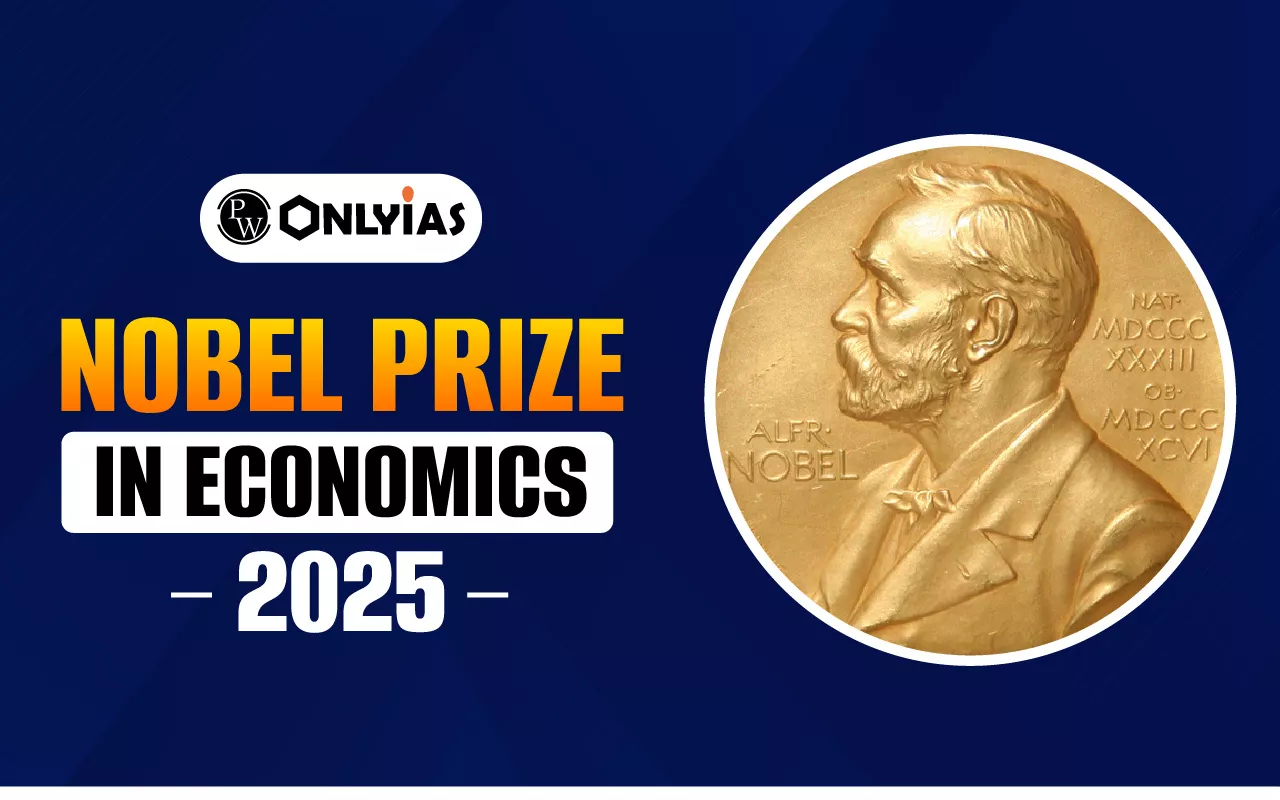The Nobel Prize in Economics 2025 has been awarded to Joel Mokyr, Philippe Aghion, and Peter Howitt for their work on innovation-driven economic growth. The prize recognizes groundbreaking research in economic sciences, with notable past winners including Amartya Sen and Abhijit Banerjee.

Nobel Prize in Economics 2025 has been announced on 13 October 2025 by the Royal Swedish Academy of Sciences. The 2025 Nobel Prize in Economics is awarded jointly to Joel Mokyr, Philippe Aghion, and Peter Howitt for their groundbreaking work on economic growth and innovation. Joel Mokyr is recognized “for having identified the prerequisites for sustained growth through technological progress”, Philippe Aghion is “for the theory of sustained growth through creative destruction”, and Peter Howitt is “for having explained innovation-driven economic growth, complementing the work of the two previous laureates”.
The Nobel Prize in Economics, formally the Sveriges Riksbank Prize in Economic Sciences in Memory of Alfred Nobel, is a prize awarded annually for achievements in the field of economics. The prize was first awarded in 1968. The Sveriges Riksbank, the central bank of Sweden, established it on occasion of the bank’s 300th anniversary. It was established in order to also recognize outstanding achievement in economic sciences.
The Sveriges Riksbank Prize in Economic Sciences is not one of the original Nobel Prizes established by the will of Swedish industrialist, inventor, and armaments manufacturer Alfred Nobel, but is run on by the Nobel Foundation alongside the other Nobel Prizes.
The Nobel Prize in Economics 2025 was awarded to Joel Mokyr, Philippe Aghion and Peter Howitt for their research on innovation as the driver of economic growth. Mokyr showed that long-run growth through technological progress requires certain conditions to be in place. Aghion and Howitt put forth the theory of creative destruction, where new innovations cause old technologies to become obsolete, thus spurring economic growth. Here is a overview of Nobel Prize in Economics 2025
| Nobel Prize in Economics 2025 Highlights | |
| Aspect | Details |
| Official Name | Sveriges Riksbank Prize in Economic Sciences in Memory of Alfred Nobel |
| Announcement Date | October 13, 2025, at 11:45 CEST |
| Awarding Body | Royal Swedish Academy of Sciences |
| Prize Components | Gold medal, diploma, cash prize (approx. 11 million Swedish Kronor / ₹10.3 crore) |
| Ceremony Date | December 10, 2025, in Stockholm |
| Prize Criteria | Significant research or contribution that has deepened understanding of the economy |
| Historical Context | Established in 1968 by Sweden’s central bank; first awarded in 1969 |
| Number of Laureates per Prize | Maximum of three per year |
| Notable Indian Laureates | Amartya Sen (1998), Abhijit Banerjee (2019) |
The winners of the 2025 Sveriges Riksbank Prize in Economic Sciences in Memory of Alfred Nobel are:
| Nobel Prize in Economics 2025 Winners List | |
| Laureate Name | Citation |
| Joel Mokyr | “for having identified the prerequisites for sustained growth through technological progress” |
| Philippe Aghion | “for the theory of sustained growth through creative destruction” |
| Peter Howitt | (Based on the broader award statement from a related image) “for having explained innovation-driven economic growth” |
A number of top economists were in the running for Nobel Prize in Economics 2025:
Check Out UPSC CSE Books
Visit PW Store
The Nobel Prize in Economic Sciences is given each year to prominent economists for their exceptional contributions. In the past five years, winners have been honored for their research in labor markets, financial systems, auction theory, and the role of institutions in development. Their work has greatly impacted economic policies and theory globally. Here is the Nobel Prize in Economics winners list for the last 5 years
| Nobel Prize Winners in Economics Last 5 Years | ||
| Year | Winner(s) | Contribution/Focus Area |
| 2024 | Daron Acemoglu, Simon Johnson, James A. Robinson | Studies on how institutions are formed and affect economic prosperity |
| 2023 | Claudia Goldin | Research on women’s labor market outcomes and gender gap over centuries |
| 2022 | Ben Bernanke, Douglas W. Diamond, Philip Dybvig | Research on banks and the role of financial institutions in the economy |
| 2021 | David Card, Joshua D. Angrist, Guido W. Imbens | Methodological contributions to causal relationships and empirical labor economics |
| 2020 | Paul R. Milgrom, Robert B. Wilson | Improvements to auction theory and invention of new auction formats |
The first winners of the Nobel Prize in Economic Sciences in 1969 were Ragnar Frisch and Jan Tinbergen, who were awarded the Prize “for having developed and applied dynamic models for the analysis of economic processes”. The Prize was established in 1968 and first awarded a year later.
Ready to boost your UPSC 2026 preparation? Join PW’s UPSC online courses today!
The Nobel Prize in Economics is officially known as the Sveriges Riksbank Prize in Economic Sciences in Memory of Alfred Nobel. The annual award recognizes outstanding contributions in the field of Economics.
The 2025 Nobel Prize in Economics was awarded jointly to Joel Mokyr, Philippe Aghion, and Peter Howitt for their work on innovation-driven economic growth. Mokyr was awarded for technological prerequisites for growth, Aghion for creative destruction, and Howitt for explaining innovation-driven growth.
Amartya Sen was the first Indian to receive the Nobel Prize in Economics in 1998 for his work in welfare economics, focusing on poverty, inequality, and famine.
Eligible candidates are those nominated by qualified individuals invited by the Economic Sciences Prize Committee. Self-nominations are not allowed.
Since its inception, 96 people have been awarded the Nobel Prize in Economic Sciences. In any given year, the prize can be shared by up to three laureates.
<div class="new-fform">
</div>